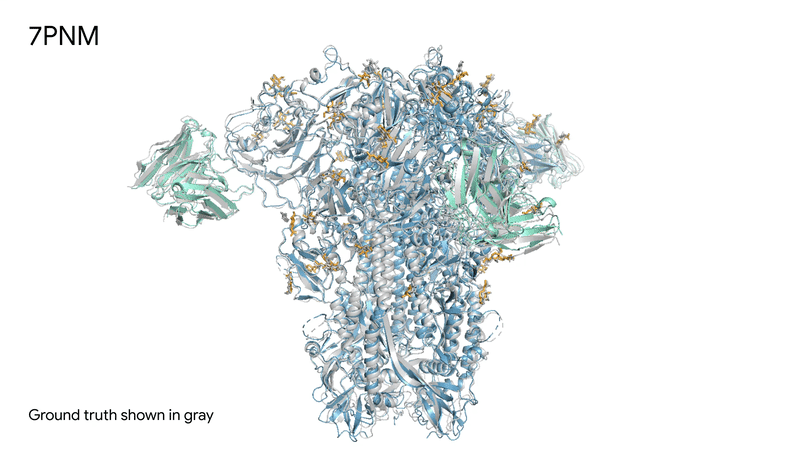AlphaFold 3 by Google DeepMind: Top 200 Innovations of 2024

AlphaFold Revolutionizes Protein Research
The Breakthrough of AlphaFold 2
In 2020, Google DeepMind introduced a remarkable machine-learning algorithm called AlphaFold 2. This innovative tool quickly became a game-changer in the field of biology. By 2022, AlphaFold 2 had demonstrated an impressive ability to predict the structure of nearly every known protein with accuracy comparable to experimental methods. Its success was recognized with a Nobel Prize in Chemistry awarded to Demis Hassabis, the co-founder and CEO of DeepMind, along with John Jumper, the team lead for AlphaFold.
Unveiling AlphaFold 3
Following the success of AlphaFold 2, Google DeepMind released a sequel known as AlphaFold 3 in May 2024. While AlphaFold 2 primarily focused on proteins, AlphaFold 3 takes a broader perspective by predicting how proteins interact not just with each other but also with DNA and other molecules. As Jumper explains, “AlphaFold 2 was a story about proteins; AlphaFold 3 is about how proteins talk to everything else.” This pivotal shift in focus is expected to be crucial for advancements in various scientific fields.
Impact on Pharmaceuticals and Medicine
The implications of AlphaFold 3 extend far beyond academic research. Many experts in the pharmaceutical and medical fields believe its predictions will significantly accelerate research and facilitate faster drug discovery. By understanding the interactions between proteins and other biomolecules, researchers can identify potential drug targets more effectively. This could lead to quicker innovations in treatments for diseases, making medicine more responsive to patient needs.
Key Features of AlphaFold 3
Here are some noteworthy aspects of AlphaFold 3:
- Enhanced Predictions: The model can predict how proteins interact with genetic material and various biomolecules, providing a comprehensive understanding of biological processes.
- Broader Applications: Its capabilities could be applied to a wide range of scientific problems, influencing fields beyond biochemistry, such as synthetic biology and gene editing.
- Improving Drug Discovery: By enabling more efficient identification of drug targets, AlphaFold 3 is positioned to transform the drug development pipeline.
The Future of Protein Interaction Studies
As AlphaFold 3 continues to evolve, its potential to reshape the scientific landscape is enormous. Researchers are keen to leverage its capabilities to create new therapies, improve diagnostic tools, and understand complex biological systems. The insights derived from this technology may unlock answers to fundamental questions in biology, paving the way for pioneering discoveries.
Prominent organizations and research institutions worldwide are already collaborating to utilize AlphaFold 3 in various studies. The model is expected to drive forward our understanding of molecular biology and contribute to the development of innovative treatments for various health conditions.
Conclusion
In summary, AlphaFold 3 represents a significant leap in our ability to understand protein interactions, offering new pathways for research and drug development. Its introduction marks a new era in computational biology, enabling scientists to explore the complexities of life at a molecular level like never before. The future of medicine and biological research looks brighter with the advancements brought forth by this groundbreaking machine-learning algorithm. For more detailed information, you can visit Google DeepMind AlphaFold 3.






